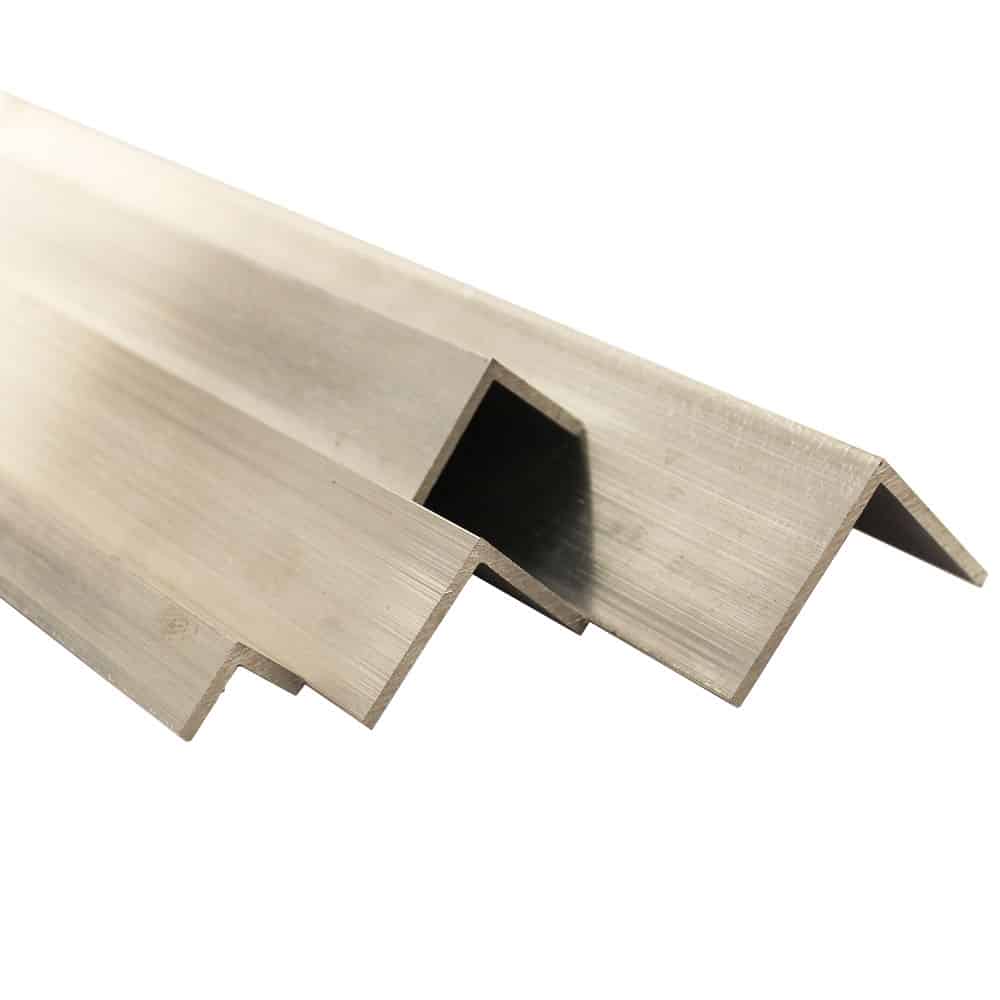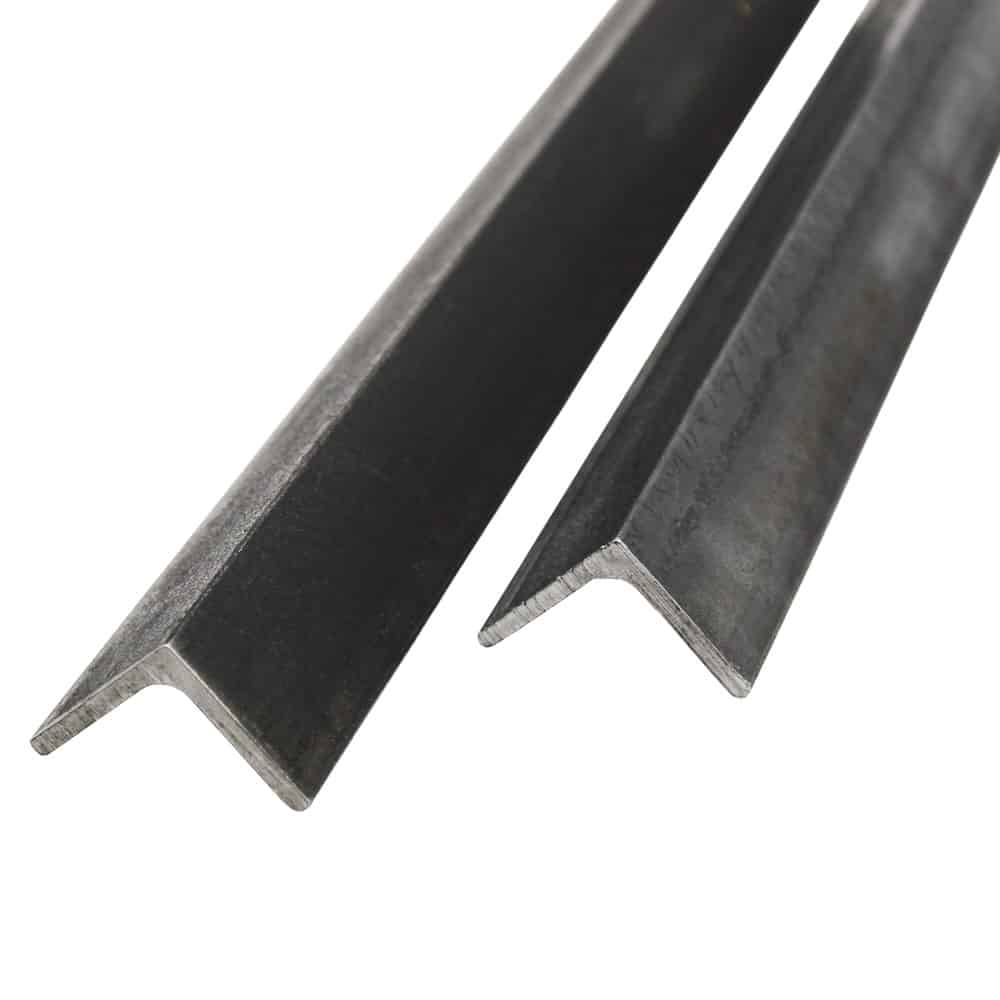- Massive Range
- FREE UK Delivery
- Rapid Dispatch
- Massive Range
- FREE UK Delivery
- Rapid Dispatch
- Massive Range
- FREE UK Delivery
- Rapid Dispatch
£18.99 – £32.99 inc VAT


This website is secured:
✔ Specialists In Rapid Shipments Of Any Size
✔ FREE UK Delivery Included
✔ Immediate Express Dispatch From Stock
✔ Tracked Delivery with Order Updates
✔ 30-Day Returns Accepted
£ Check Out Our Clearance Listing For Savings
@ ☏ Bespoke Sizes & Larger Sheets Available
Looking for a durable and cost-effective steel angle iron to meet your industrial needs? Look no further than Speciality Metals. Our 50mm x 50mm x 6mm mild steel angle iron steel section is versatile thanks to its excellent welding, bending, forming and machining abilities. Not only is it durable and able to stand up to heavy use, but it’s also recyclable, making it an environmentally friendly choice. Plus, its malleable nature means you can shape it to fit your exact specifications.
With UK supply, you can trust that you’ll receive high-quality steel angle iron quickly and reliably.

Our top-quality mild steel angle iron bar is cut, packed and shipped by our terrific team in Warrington, UK within 24 hours. We pride ourselves on our speed for orders of all sizes.
Speciality Metals boast an enormous range of mild steel angle. If you require stainless steel or aluminium we’ve got you covered. We truly are an industry leader among suppliers of many metal products. With our in-house capabilities, we can provide virtually anything you need for your project.
Steel Angle Sections 50mm x 50mm x 6mm from Speciality Metals are an excellent choice for a variety of applications. Due to the high-quality materials it uses, this steel angle iron is not only recyclable, but also malleable, making it easy to shape to your exact requirements. Moreover, this steel angle iron has excellent welding, bending, forming and machining capabilities, making it an excellent choice for those searching for a cost-effective solution. The Mild Steel Angle Iron from Speciality Metals is perfect for installing railings, building frameworks and constructing support beams.
We the exact suppliers for you because:
Check out our blog discussing mild steel angle. This gives you a beginners guide to the product which should answer any question that you may have.
In addition to being a very useful fence post, our mild steel angle iron bar is also suitable for the construction of fences or trailers. As a result, it offers a solid and reliable structure as well as a high degree of recycling, making it a very environmentally friendly choice. We offer this section bar in a variety of sizes and thicknesses.
Key product details:
We also carry a wide range of mild steel sheet metal and flat bar.
Mild steel angle bars can be joined using several methods, depending on your tools, skills and the application’s requirements:
Welding: This is the most common and strongest method for joining mild steel angle bars. You can use different welding methods like MIG (Metal Inert Gas), TIG (Tungsten Inert Gas), or stick welding. Ensure the surfaces to be welded are clean and free of paint, rust or other contaminants.
Bolting: This is another common method for joining mild steel angle bars. Drill holes into the bars where you want to join them, and then use bolts and nuts to secure them together. This method is less permanent than welding and allows for disassembly if needed.
Riveting: This involves using a rivet to join the two pieces of metal. It’s a less common method but can be useful for some applications.
Adhesive: Special metal adhesives can also be used to join mild steel angle bars. However, this method is not as strong as welding or bolting and may not be suitable for structural applications.
Mild steel angle bars are generally not recommended for use in acidic environments because mild steel is susceptible to corrosion when exposed to acids. In acidic conditions, the steel can undergo rapid degradation, leading to a weakened structure and compromised integrity of the material. Mild steel lacks the chromium content found in stainless steel that forms a protective oxide layer, making it less resistant to corrosion in such harsh conditions.
If the application requires the use of mild steel in an acidic environment, it may be possible to extend the life of the material through protective coatings, such as epoxy or other corrosion-resistant paints. However, these coatings would need to be applied meticulously and may require frequent re-application, especially if the material will be exposed to mechanical wear or high-velocity flow conditions that could strip away the protective layer.
Therefore, while it is technically possible to use mild steel angle bars in acidic environments, doing so would generally be ill-advised unless you are willing to undertake frequent maintenance or are using the steel in a non-structural, temporary capacity. For long-term or structural applications in acidic conditions, materials such as stainless steel or specialised corrosion-resistant alloys are typically a better choice.
As one of the most common materials used in construction, steel angle iron is known for its durability and strength. However, if not properly taken care of, mild steel angle bars can succumb to rust and corrosion. This is particularly problematic for outdoor applications where exposure to harsh weather conditions can accelerate the rusting process. To prevent rust from forming on your mild steel angle bars, it is crucial to follow certain steps. These include cleaning the metal thoroughly to remove any dirt or debris, applying a rust inhibitor, and painting or coating the surface with a protective layer. By taking the necessary precautions, you can ensure that your steel angle bars remain free of rust and maintain their structural integrity for years to come.
When it comes to mild steel angle bars, there are two common manufacturing processes: hot rolling and cold rolling. Hot rolled mild steel angle bars are created by heating a billet of steel to a high temperature and then rolling it into the desired shape. This process results in a rougher finish and a more rounded edge compared to cold rolling, as well as a larger overall size tolerance. In contrast, cold rolled mild steel angle bars are formed by passing a metal sheet through a rolling machine at room temperature. This process produces a smoother finish and sharper edges, as well as increased strength due to the metal being hardened through the rolling process. While both hot and cold rolled mild steel angle bars have their own advantages, the main difference is in the manufacturing process and the resulting surface finish.
Check out our recent article about all things mild steel angle iron for a deeper dive into all things angular iron.
We are also very proud of our ever expanding YouTube channel.
Our goal for our blogs and help guides is to answer as many questions as possible to help to explain the possibilities of mesh to our customers. Contact us today if you have any questions at all. We are always really keen to help in any way that we can.
We are also very proud of our highly popular eBay store, check us out there too.
Thank you for checking out our product.
£10.99 – £13.99 inc VAT
£13.99 – £21.99 inc VAT

£10.99 – £13.99 inc VAT

£13.99 – £21.99 inc VAT
Speciality Metals
Unit 1, Farrell Street, Warrington,
Cheshire, WA1 2WW, United Kingdom
Quick Links
Payment Options
